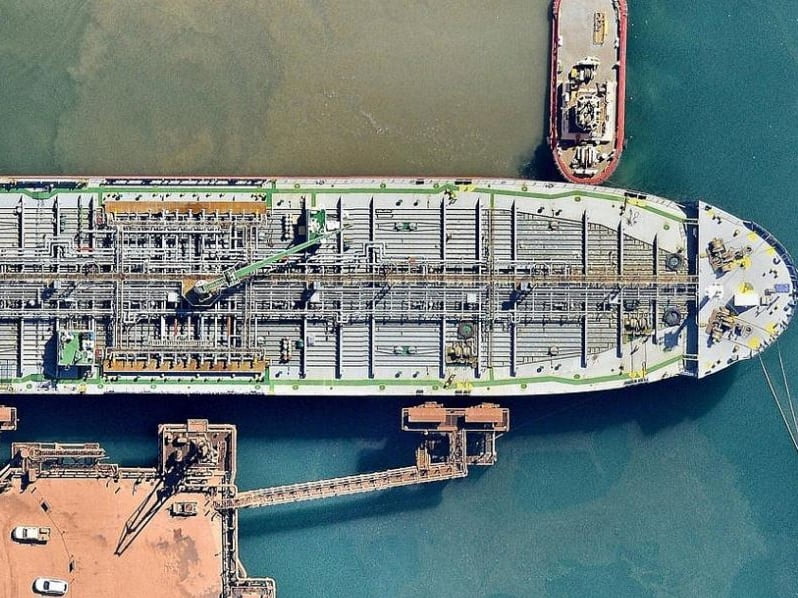Shares in ASX-listed geospatial mapping and visual analytics company Nearmap soared nearly 30 per cent recently on the back of a positive quarterly financial update. Its shares are now worth 51.5 cents, giving the company a market capitalisation of nearly $200 million.
Over the past few years Nearmap has turned the aerial photography market on its head with its use of hi-res digital imagery, patching together thousands of photograph tiles into seamless large scale ‘photomaps’.
Nearmap’s use of images taken from multiple angles allows its customers a far richer view of a location than that offered by conventional aerial and satellite photography, and it has developed and patented its own photography equipment and software, including overlays designed specifically for industry verticals such as construction, rail, solar and insurance.

Images are captured at 7cm per pixel, five times the resolution of satellite imagery. They are also frequently captured, often daily, ensuring customers have access to the latest imagery and allowing them to build detailed time-series libraries. The ability to overlay aerial images with data sets such as population demographics and building approvals provides Nearmap’s key differentiator.
Much of Nearmap’s recent growth has been driven by its successful entrance into the US market, where it now has over 250 customers. The company has grown to more than 120 staff across five offices in Australia and the US.
But success has not come easily. “When we started, we were the only company in Australia offering aerial imagery and visual analytics technology solutions,” says CEO Rob Newman. “Hardly anyone was aware of this kind of offering and what it could do for businesses.”
“Our biggest challenge was educating people about the benefits of the technology. We needed to demonstrate the advantage of spending less time surveying and taking measurements, and more time on planning and execution,” Mr Newman said.
“It was also crucial to differentiate our high-resolution and up-to-date aerial imagery from other offerings such as satellite imagery. There are many more industries that can benefit from Nearmap, and a lot more potential for the business to grow.”
“We even have businesses like food trucks use our technology to find the best hot-spots to bring in more business. Roofing companies use us to look at the effects of weathering. Insurance companies can do a risk assessment without leaving their office.”
Mr Newman says that the $1 billion in incentives and spending measures announced in December as part of the Government’s National Innovation and Science Agenda was very welcome.
“But what Australia’s innovation and science industries really needs is consistent and sustained support.”
“The government can help by ensuring that the measures being implemented today will not change if the administration changes. This is more important than simply releasing a new program every so often, and will ensure more employment opportunities for future generations of innovators. We need continuity.
“That means the best policy is to not change policy. Australia’s technology businesses need consistency in policies that continue across changes in prime minister and changes in government. The only policy that we really rely on is the R&D tax rebate, as this is the only policy that has stood the test of time.”
Mr Newman says that any new industry policy should:
- Have bipartisan support.
- Ensure that government doesn’t pick the winners, but rather government dollars back the investment made by industry.
- Encourage success in Australian market first, then support expansion offshore.
“An example might be a debt facility that matches forward cash flows or funds raised from professional investors that is repayable over time,” he says.
Nearmap is particularly interested in the various smart cities strategies around the world. “At Nearmap we firmly believe that there is always a better way. That is our value proposition and what inspires us to keep innovating.
“Cities like Amsterdam, Santander in Spain and Bristol in England are great examples of how technology and smart thinking can help improve the way we address everyday activities, making our cities more liveable. For example, Santander has sensors placed across the city to measure air pollution levels, traffic congestion, garbage in containers and many other things.
“The information collected by these sensors is analysed and shared to make the city function more efficiently. This is really inspiring for us. It is something we can really relate to – one of our main objectives is to use technology to streamline processes and to help with strategic planning for construction and infrastructure projects. We are now seeing some exciting projects here in Australia, like Sydney’s Innovation Centre and Adelaide’s Smart City Studio.”
How does Mr Newman see Nearmap’s future? “We want to be one of the top ten aerial imagery companies in the world. We continue to develop our technology, tools and analytics to cater to new markets, and there’s also a strong opportunity for new product development.
“While we have strong steady growth, our challenge is to accelerate this growth. There is still a largely untapped market in Australia and the US, which presents us with many opportunities.
“I think a lot about how to grow our business more rapidly. We’ve established a world leading technology and business model.
:We have proven this model in Australia and are only limited by funding how quickly we can grow that same model overseas. My biggest concern is that we don’t miss the opportunity to create a global company based in Australia.”
Do you know more? Contact James Riley via Email.

